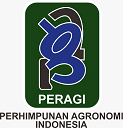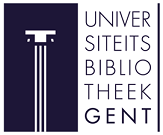Conditions of Sericulture Climate Typology in Soppeng District, South Sulawesi, Indonesia
Abstract
Keywords
Full Text:
PDFReferences
Agustarini, R., Andadari, L., Minarningsih, & Dewi, R. (2020). Conservation and breeding of sericultureworm (Bombyx mori L.) in Indonesia. IOP Conference Series: Earth and Environmental Science, 533(1). https://doi.org/10.1088/1755-1315/533/1/012004
Andadari, L. (2016). Pemilihan Jenis Hibrid Ulat Sutera Yang Optimal Untuk Dikembangkan Di Dataran Tinggi Dan/Atau Dataran Rendah. Jurnal Penelitian Hutan Tanaman, 13(1), 13–21. https://surl.li/ctxwgr
Andadari, L., & Kuntadi, K. (2014). Perbandingan Hibrid Ulat Sutera (Bombyx Mori L.) Asal Cina Dengan Hibrid Lokal Di Sulawesi Selatan. Jurnal Penelitian Hutan Tanaman, 11(3), 173–183. https://doi.org/10.20886/jpht.2014.11.3.173-183
Andadari, L., & Samsijah, S. (1992). Effects of cocooning frames on cocoon quality. Buletin Penelitian Hutan, 8(552). https://www.cabidigitallibrary.org/doi/full/10.5555/19950609537
Andadari, L., & Sunarti, S. (2015). Kualitas kokon hasil persilangan antara ulat sutera (Bombyx mory L.) ras Cina dan ras Jepang. Jurnal Pemuliaan Tanaman Hutan, 9(1), 43–51. https://doi.org/10.20886/jpth.2015.9.1.43-51
Ashar, N. M., Nurmalina, R., & Muflikh, Y. N. (2024). Sericulture Agribusiness Development Strategy in South Sulawesi Province, Indonesia. Agro Bali: Agricultural Journal, 7(3), 810–823. https://doi.org/10.37637/ab.v7i3.1915
Bhat, M.R., Radha, P., Faruk, A.A., Vas, M., Brahma, D., Bora, N.R., Bharathi, K.M., Garai, I. (2024). Climate Change and Its Impact On Sericulture. International Journal of Zoology and Applied Biosciences, 9(4), 13-25. https://doi.org/10.55126/ijzab.2024.v09.i04.004
BPS Soppeng Regency. (2023). Soppeng Regency in Number. BPS Soppeng Regency
Chen RuiTing, C. R., Xiao Ying, X. Y., Liu Zhen, L. Z., Li LeiLei, L. L., Lu Yan, L. Y., Jiao Peng, J. P., & Miao YunGen, M. Y. (2019). Three vital RNA functions and interactions in the process of silk gland apoptosis in silkworm Bombyx mori. Archives of Insect Biochemistry and Physiology, 100. https://doi.org/10.1002/arch.21511
Dai, J. L., Zhang, M., Hu, Q. H., Huang, Y. Z., Wang, R. Q., & Zhu, Y. G. (2009). Adsorption and desorption of iodine by various Chinese soils: II. Iodide and iodate. Geoderma, 153(1–2), 130–135. https://doi.org/10.1016/j.chemosphere.2015.01.031
Datta, D., Pohlentz, G., Schulte, M., Kaiser, M., Goycoolea, F. M., Müthing, J., Mormann, M., & Swamy, M. J. (2016). Physico-chemical characteristics and primary structure of an affinity-purified α-D-galactose-specific, jacalin-related lectin from the latex of mulberry (Morus indica). Archives of Biochemistry and Biophysics, 609, 59–68. https://doi.org/10.1016/j.abb.2016.09.009
Du, Q.-Z., Zheng, J., & Xu, Y. (2008). Composition of anthocyanins in mulberry and their antioxidant activity. Journal of Food Composition and Analysis, 21(5), 390–395. https://doi.org/10.1016/j.jfca.2008.02.007
Duke, J. A. (2001). Morus alba (L.). Handbook of Energy Crops. Available Online: https://www.scirp.org/reference/referencespapers?referenceid=1357256
Estetika, Y., & Endrawati, Y. C. (2018). Produktivitas ulat sutera (Bombyx mori L.) ras BS-09 di daerah tropis. Jurnal Ilmu Produksi Dan Teknologi Hasil Peternakan, 6(3), 104–112. https://journal.ipb.ac.id/index.php/ipthp/article/view/26189/16979
Fambayun, R. A., Agustarini, R., & Andadari, L. (2022). Cultivation and Breeding Techniques for Increase Silk Productivity in Indonesia. IOP Conference Series: Earth and Environmental Science, 995(1). https://doi.org/10.1088/1755-1315/995/1/012055
Gowda M, Zhao Y, Maurer HP, Weissmann EA, Würschum T, Reif JC. (2013). Best linear unbiased prediction of triticale hybrid performance. Euphytica 191: 223-230. DOI: 10.1007/s10681-012-0784-z
Han, Q., Gao, H., Chen, H., Fang, X., & Wu, W. (2017). Precooling and ozone treatments affects postharvest quality of black mulberry (Morus nigra) fruits. Food Chemistry, 221, 1947–1953. https://doi.org/10.1016/j.foodchem.2016.11.152
Hartati. (2015). Analisis Fenotip Ulat Sutera (Bombyx mori L) Hasil Persilangan Ras Jepang, China, dan Rumania (1st ed.). Global RCl. https://eprints.unm.ac.id/14685/11/Buku%20%20Referensi.pdf
Hemmatabadi, R. N., Seidavi, A., & Gharahveysi, S. (2016). A review on correlation, heritability and selection in silkworm breeding. Journal of Applied Animal Research, 44(1), 9–23. https://doi.org/10.1080/09712119.2014.987289
IASBABA. (2023). Do Not Open This Test Booklet Until You Are Told To Do So. 1(iii).
Jian, Q., Ningjia, H., Yong, W., & Zhonghuai, X. (2012). Ecological issues of mulberry and sustainable development. Journal of Resources and Ecology, 3(4), 330–339. https://doi.org/10.5814/j.issn.1674-764x.2012.04.006
Lu, Q.Y., Wu, Z.J., Xia, Z.S., & Xie, L.H. (2015). A new nepovirus identified in mulberry (Morus alba L.) in China. Archives of Virology, 160, 851–855. https://doi.org/10.1007/s00705-014-2330-x
Nuraeni, S. (2017). Gaps in the thread: Disease, production, and opportunity in the failing silk industry of south sulawesi. Forest and Society, 1(2), 110–120. https://doi.org/10.24259/fs.v1i2.1861
PV, K., P, J., & Umapathy, G. (2019). Characterization of waste water for cultivation of mulberry. Journal of Pharmacognosy and Phytochemistry, 8(3), 141–144. http://www.eschooltoday.com/wastewater/what-is-wastewater.html/
Ram, R.L., Maji, C., Bindro, B.B. (2016). Impact of Climate Change on Sustainable Sericultural Development in India. International Journal of Agriculture Innovations and Research, 4(6), 1110 - 1118
Sadapotto, A., Lusia, P., Riwu, M., Sahide, M. A. K., Sirimorok, N., Parenreng, S. M., Salindeho, Y. M., Yahya, A. F., Mulyani, A., Said, R. D., Suryani, S., Rauf, Y., & Pratama, Y. F. (2021). Laporan Kajian Rantai Nilai Komoditas Sutra Sulawesi Selatan. Bappelitbangda Provinsi Sulawesi Selatan.
Sarkar, N., Ghosh, S. K., Bannerjee, S., & Aikat, K. (2012). Bioethanol production from agricultural wastes: an overview. Renewable Energy, 37(1), 19–27. https://doi.org/10.1016/j.renene.2011.06.045
Sasmita, N., Purba, J. H., & Yuniti, I. G. A. D. (2019). Adaptation of Morus alba and Morus cathayana plants in a different climate and environment conditions in Indonesia. Biodiversitas Journal of Biological Diversity, 20(2), 544–554. https://eprints.unmas.ac.id/id/eprint/127/
Sidabutar, F., Trigunasih, N. M., & Sumarniasih, M. S. (2023). Evaluasi Kesesuaian Lahan untuk Pengembangan Tanaman Konservasi dan Perkebunan di DAS Unda, Provinsi Bali, Indonesia. Agro Bali : Agricultural Journal, 6(3), 852–859.
https://doi.org/10.37637/ab.v6i3.1277
Singhal, B. K., Khan, M. A., Dhar, A., Baqual, F. M., & Bindoroo, B. B. (2010). Approaches to Industrial Exploitation of Mulberry (Mulberry sp.) Fruits. Journal of Fruit and Ornamental Plant Research, 18(1), 83–99. https://www.cabidigitallibrary.org/doi/full/10.5555/20103259939
Srivastava, C. M., Purwar, R., Kannaujia, R., & Sharma, D. (2015). Flexible silk fibroin films for wound dressing. Fibers and Polymers, 16, 1020–1030. https://doi.org/10.1007/s12221-015-1020-y
Sumarniasih, M. S., Kembaren, D. A., Narka, I. W., & Karnata, I. N. (2023). Evaluasi Kualitas Tanah dan Pengelolaan Lahan Kering di Kecamatan Gerokgak dan Kubutambahan Kabupaten Buleleng, Provinsi Bali, Indonesia. Agro Bali : Agricultural Journal, 6(3), 659–669. https://doi.org/10.37637/ab.v6i3.1517
Vijayan, K., & Chatterjee, S. N. (2003). ISSR profiling of Indian cultivars of mulberry (Morus spp.) and its relevance to breeding programs. Euphytica, 131(1), 53–63. https://doi.org/https://doi.org/10.1023/A:1023098908110
Wang, H., & Huang, G. (2024). Extraction, purification, structural modification, activities and application of polysaccharides from different parts of mulberry. Food & Function, 15(8), 3939–3958. https://doi.org/10.1039/D3FO05747J
Widiarti, A., Andadari, L., Suharti, S., Heryati, Y., Yuniati, D., & Agustarini, R. (2021). Partnership model for sericulture development to improve farmer’s welfare (a case study at bina mandiri farmer group at Sukabumi Regency). IOP Conference Series: Earth and Environmental Science, 917(1). https://doi.org/10.1088/1755-1315/917/1/012009
Yuniarti, A., & Wahyuddin Nur, A. (2024). Transformasi Tenun Sutera Melalui Kolaborasi dengan Perguruan Tinggi dalam Era Digital. Journal of Human And Education, 4(2), 160–166. https://doi.org/10.31004/jh.v4i2.739
Zhao, W., Fang, R., Pan, Y., Yang, Y., Chung, J.-W., Chung, I.-M., & Park, Y.-J. (2009). Analysis of genetic relationships of mulberry (Morus L.) germplasm using sequence-related amplified polymorphism (SRAP) markers. African Journal of Biotechnology, 8(11). http://www.academicjournals.org/AJB
Zhou, L., Zhao, Y., Wang, S., Han, S., & Liu, J. (2015). Lead in the soil–mulberry (Morus alba L.)–silkworm (Bombyx mori) food chain: translocation and detoxification. Chemosphere, 128, 171–177. https://doi.org/10.1016/j.chemosphere.2015.01.031
Refbacks
- There are currently no refbacks.


























